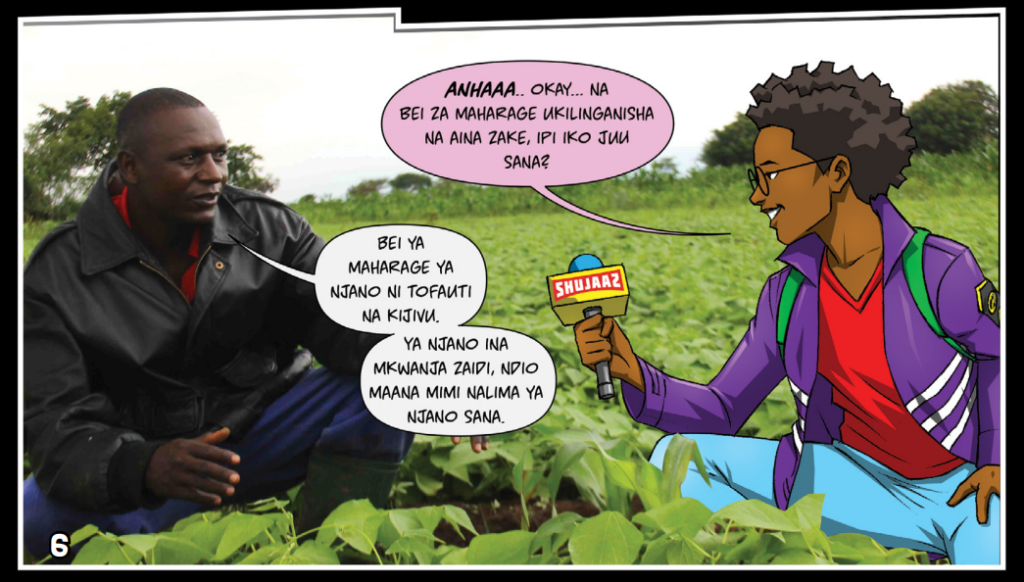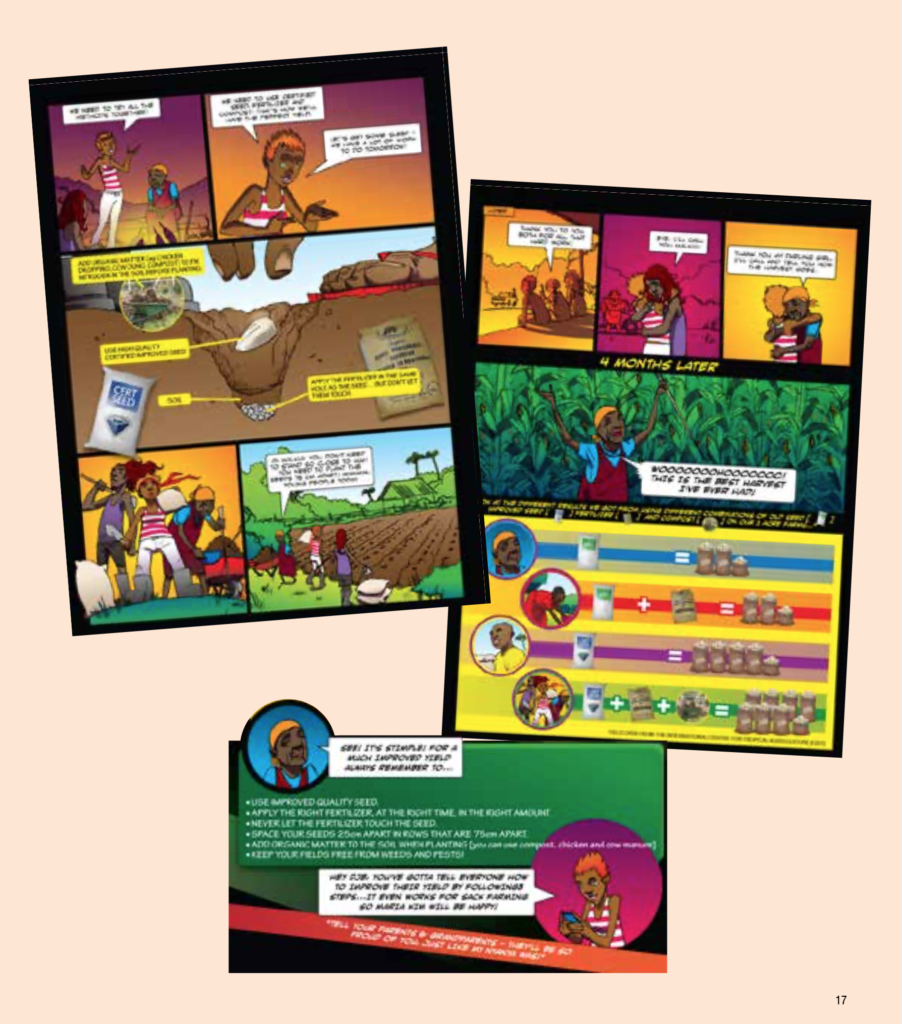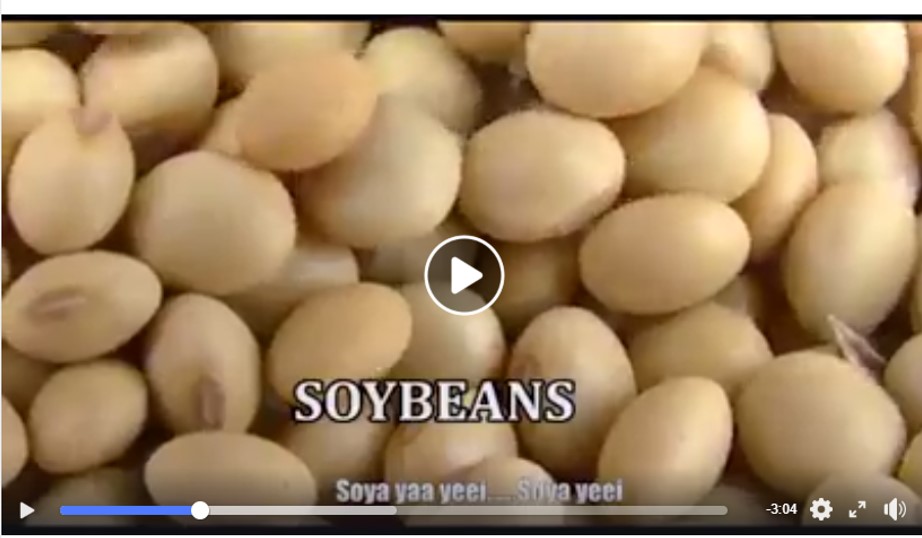How comics, pop music and drama deliver down-to-earth messages to help African farmers improve their soil

5 December is World Soil Day. Soil is a life source for healthy ecosystems, healthy food and, ultimately, healthy humans. With a growing population, the soil that’s cultivated will have to feed many more people, but it will only be able to do this if soil fertility is managed.
This year’s World Soil Day theme is Stop soil erosion, save our future. The UN describes erosion as the degradation or displacement of the top 2-3 cm of soil. One of the biggest causes of erosion is removal of vegetation. This isn’t just deforestation – many farming practices like burning off weed can disrupt soil structure, making it more prone to erosion.
An estimated 65% of arable land in Africa suffers from land degradation. This equates to $68 billion per year in lost crop production (2014 Montpellier Panel Report). But there are small changes that farmers can make to restore the fertility of their soil and make erosion less likely.
How can we help farmers to keep their soil healthy?
Development communication and extension help to encourage conversations about sustainable farming solutions within local communities. This social learning is important. Farmers are more likely to get the information they need from other farmers. But how can science-based agricultural knowledge get into the conversations of smallholder farmers, to help them restore their soil?
Since 2015, the CABI-led, Africa Soil Health Consortium (ASHC) has been developing campaigns to encourage small-scale farmers to apply integrated soil fertility management (ISFM) practices. ISFM involves the use of organic matter, fertilizers and healthy seeds, combined with know-how about adapting them for local conditions, to improve harvests.
ASHC has used innovative approaches to get the messages to stick. Entertainment, humour and role models play an important role in development communication.
How are we using comics, pop music and drama to share knowledge?
There will always be a place for conventional approaches to extension and information sharing, but ASHC also wanted to introduce some popular cultural elements to the mix. The idea was that well-produced music, drama or comics would deliver hard-hitting messages and would also be likely to be revisited by farming families for their entertainment value.
The idea of this campaign-based approach is that messages resonate with different family members. Overall, the campaign might reach a farming household through 3 or 4 different formats or media. Evidence shows that this campaign-based approach makes it more likely that families will trial the technologies being promoted and, we hope, the quality of the adoption will also be high because the messages are designed to stick.

Shujaaz is a youth comic published in Kenya and Tanzania. The Legume Alliance – part of the ASHC family – contacted Shujaaz to see if they could make maize farming ‘cool’. Over four years, stories appeared in around 1.5 million comics. Each comic is read by an estimated 10 readers. The agricultural stories in Shujaaz in Tanzania have contributed to a major shift in young people’s attitudes to farm-based enterprises as part of their strategy for earning their livelihood.

In 2018, Gender and the Legume Alliance (GALA) worked with Countrywise Communication Ghana to develop and screen music videos on how to grow soybeans in Ghana. More than 40,000 members of farming families attended village-based screenings of the videos and yet more accessed them via Facebook. Part of the success was down to carefully crafted music: contemporary in style and reflecting popular ‘high-life’ and ‘hip-life’ culture but also based on traditional folk music that make the videos appealing. The videos also reflected the way that two different Ghanaian communities practice agriculture. One video has men working alone in the field, the other has a group of women collectively preparing the land for cultivation. This nuanced local culture is only possible when the creatives producing the material are recruited in-country.
In 2018, Farm Radio worked on a 6-part radio drama designed to appeal to women. The soap opera format contained a great deal of information on how to grow and market legumes. It also allowed the project to explore how gender issues impacted on farm-level decision making. CABI is currently working with partners on a Banana Agronomy project in Uganda, part of which includes producing ‘banana agronomy dramas’. The dramas aim to present Good Agronomic practices for banana production including key messages on water management, soil organic matter use and maintenance, moisture retention in different soil types for better banana production.
The CABI-led Plantwise programme innovatively engages national extension partners in more than 30 countries to offer plant clinics, where plant doctors diagnose the pests and diseases that make smallholder farmers’ plants sick. The doctors offer practical plant health advice, including how to restore soil fertility.
ASHC has worked with its partners to develop a library of over 500 materials including the material featured above. We hope these will inspire you to be creative and make hard-hitting, science-led farmer information for farmers.
Healthy soils are an important step to profitable farming. On this World Soil Day, let’s all take a moment to think about how we can contribute to healthy soil – by creating messages that stick and ways we can shape conversations by merging entertainment and proven scientific approaches; or by liking and sharing this blog post if you enjoyed reading it or learned something new.
